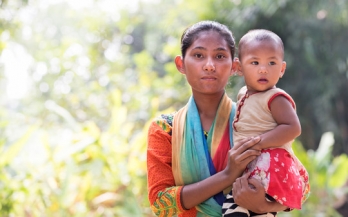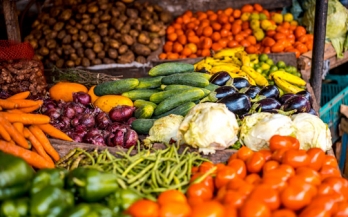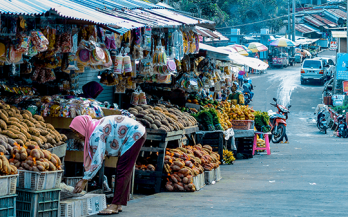Our current food system is in dire need of change. To enable resilient, affordable, safe, and nutritious diets for the current and growing global population while restoring and safeguarding our environment, we need to think and act out of the box. GAIN, the Alliance of Bioversity and CIAT, and EAT joined forces to conduct a three-stage Delphi study, to identify and investigate game-changing innovations for improving diets and restoring environments by 2030.
The global food system is a major driver of environmental degradation, ill health, premature mortality and inequity. To enable resilient, affordable, safe and nutritious diets for the current and growing global population while restoring and safeguarding our environment, we need to urgently innovate food system solutions that work for both people and planet.
Food supply chains are challenged to deliver affordable, safe and nutritious food. GAIN has developed a tool for analysing specific supply chains identify weaknesses or bottlenecks and suggesting potential interventions to improve nutrition along the supply chain, i.e. Supply Chain Analysis for Nutrition (SCAN). Supply chains structure how goods and services move from producers to consumers and are key components of the food system.
Malnutrition is a major problem across many parts of the world, leading to poorer outcomes in infants and children and health problems throughout life, which reduce economic growth and quality of life. Many of the causes of malnutrition have to do with diets, and diets are shaped by the food system.
This report addresses a critical issue of our time – how can we exploit new ideas and new technology to nourish and feed a growing world, and do it sustainably? Working on food systems reform, it is easy to underestimate the speed of change around us. But the reality is that even in the remotest corners of the globe, the drivers of food systems change are making their presence felt with storm-like force.





